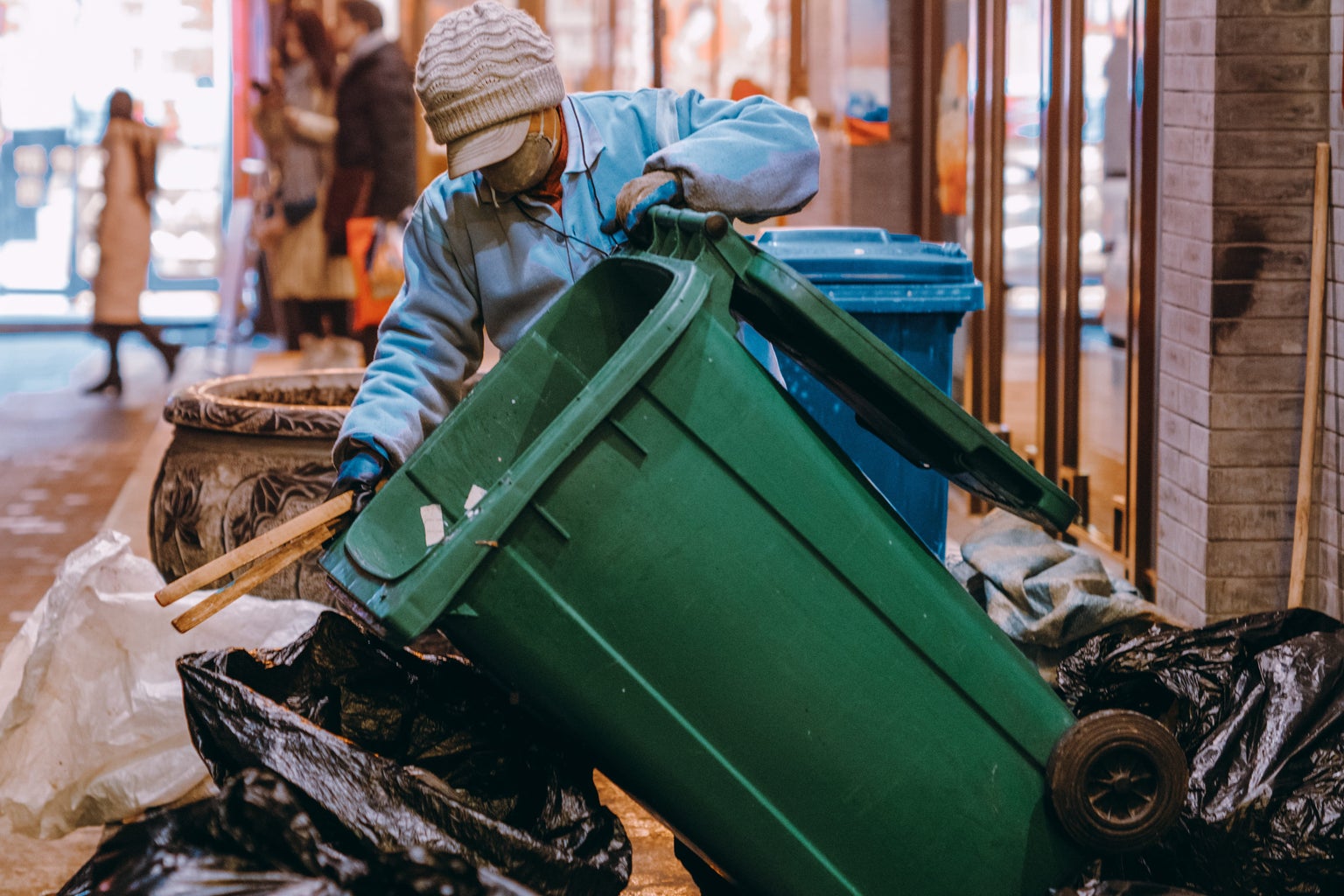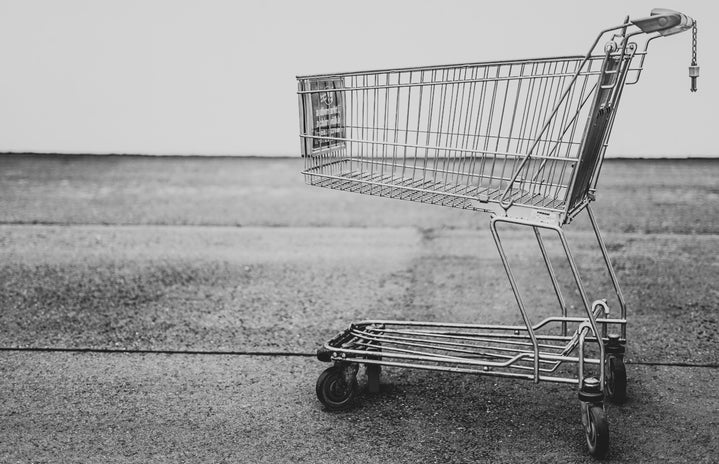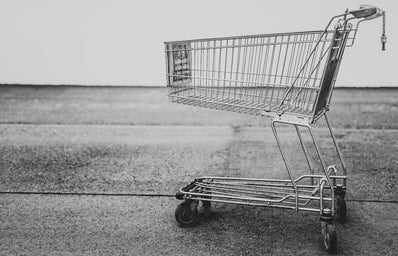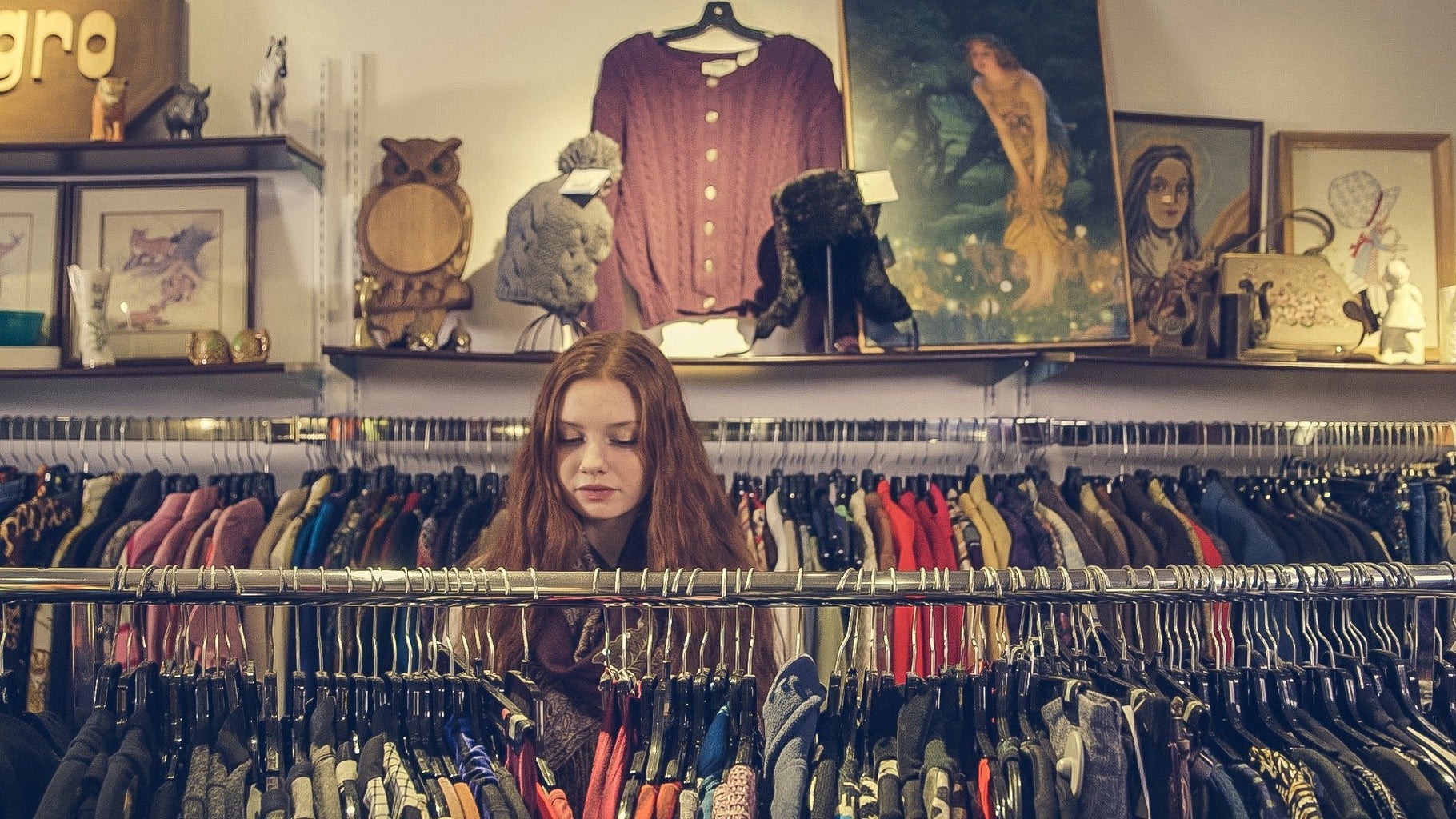Our American identity is loosely based on catered accessibility and excess. When foreigners look at America, one of the first things they notice is this perpetuation of spending habits which are mostly attributed to urban areas. As these spaces evolve, there is a new demand for speed as people surround themselves with materials that define them. Hartmut Rosa, a Sociology professor at the Friedrich Schiller University of Jena mentions, “In fact, we can see that the change was not caused or initiated by new technologies, but to the contrary: the new technologies, the steam engine, the railway, and the industrial revolutions were answers to a changed awareness of time, to a new need for speed. Thus, people tried to move faster.” Our developments are a result and not the cause of our need to consume.
In his Netflix stand-up comedy Ronny Chieng: Asian Comedian Destroys America, Ronny Chieng talks about when he first came to America, he was startled by the amount of excess Americans produce and waste. It is interesting to listen to his perspective since he is an immigrant and he brings up insights about our culture that we have normalized.

Compared to other countries, the amount of waste and spending in the States is very high. Originally, Chieng is from China. Although China also has a vast history of consumerism, America beats them in this competition (not necessarily a good thing). In fact, “the US, consumers currently spend 17.3% of personal spending on fun, compared to 9.2% in China. The majority of the Chinese consumer’s spend their income on clothes, food, and ‘looking more beautiful’, according to Goldman Sachs.” This leads to higher energy expenditure. America consumes far more than any other country. The University of Michigan: Center of Sustainable Systems puts this in perspective when looking at 2021 data. They say that “with less than 5% of the world’s population, the U.S. consumes almost 17% of the world’s energy and accounts for 16% of world GDP.”
Ronny Chieng goes on to describe that due to this amount of excess, “we need [Amazon] Prime harder, faster, stronger.” Our demand for more things and material objects goes beyond normal desire. Chieng continues to say, “So much content on demand. So many screens per capita.” These screens make advertisements more accessible and more catered to the public. We buy screens like phones, tablets, and computers, and then use them to view more content which leads to buying more stuff. This leads to an ongoing cycle of consumerism and mass amounts of excess. Americans have this culture of shopping and desire ingrained in our systems, but how did we get here?
According to Vox, Americans’ need to shop comes from this concept of “competing among ourselves.” They argue that people are “consuming to their social position” and someone’s identity is linked to their natural desire to become “the kind of person that they think they are.” Unsurprisingly materialism and consumerism are tied to socioeconomic status. Although our current positions may not imitate the ideals of ourselves we hold, there is an aspect of manifestation going into our habits. Rather than desire, our spending is more about collective determination to be better and to be viewed as worthy in public.
Rather than discourage anybody from spending or treating themselves, I wanted to acknowledge how we take advantage of our collective and communal desire to spend. This knowledge puts how much we’ve spent as a whole into perspective, but it barely scratches the surface of the issue. Thus, I encourage doing more research on how consumerism is linked to American and individual identity. When our purchases become all about us, there is a removal of how it impacts others. Our habitual consumerism has centered the conversation toward our greed and needs for social capital.



